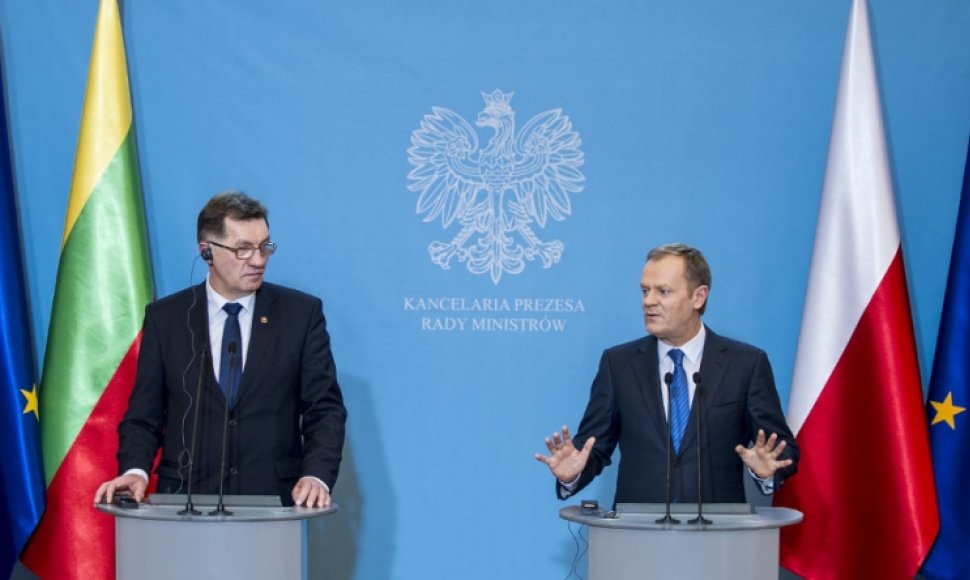"We had a superb conversation about a linking gas pipeline between Lithuania and Poland, as well as a joint appeal to the European Commission for funding for the project," the Lithuanian PM said in an interview to BNS on Tuesday night via telephone from Warsaw.
In his words, the conversation with Polish Prime Minister Donald Tusk resulted in an agreement to seek that the gas pipeline "is included as a separate entry in the EU list of strategic projects." A feasibility study is currently conducted in connection to the gas pipeline.
The projected gas pipeline is among the projects that are key to Lithuania amid its efforts to rid the monopoly of the Russian gas concern Gazprom. Lithuania currently receives Russian gas only, and it arrives via a pipeline through Belarus. In an effort to diversify the gas supply, both Lithuania and Poland are currently building liquefied natural gas terminals.
In Butkevičius' words, the meeting also addressed the power link and its possible second branch: "We also touched upon LitPolLink-2 – I think it was a positive gesture as the issue had been stalled."
Asked by BNS about the need to discuss the second branch project until Lithuania decides on its nuclear plans, Butkevičius replied: "Yes, the issue is for a bit later. The opinion earlier was that the issue has been forgotten."
The prime minister said that LitPolLink-2 would be reopened after the government decides on continuing the Visaginas nuclear power plant project.
He said the conversation with Tusk also discussed the issue of Rail Baltica, which has made little progress in Poland so far.
"We intend to build the European track all the way to Kaunas next year, and nothing is done or reconstructed from the Lithuanian-Polish border," the Lithuanian PM said.
In Butkevičius' words, issues of national minorities "were mentioned in diplomatic manner to avoid emotions." He said he also notified his Polish counterpart about a task force set up in Lithuania to address matters of national minorities.
The Polish prime minister, in his turn, expressed certitude that the expert group would help solve complex matters.
"I was greatly impressed by the prime minister's determination and his belief that the effects of this team's work will be an important step in resolving these not always easy problems. It appears that the coming years could be a better time than those we have left behind us," Tusk said.
According to the Polish news agency PAP, Tusk also stated that “Poland's relations with Lithuania can and must be better than good.”












